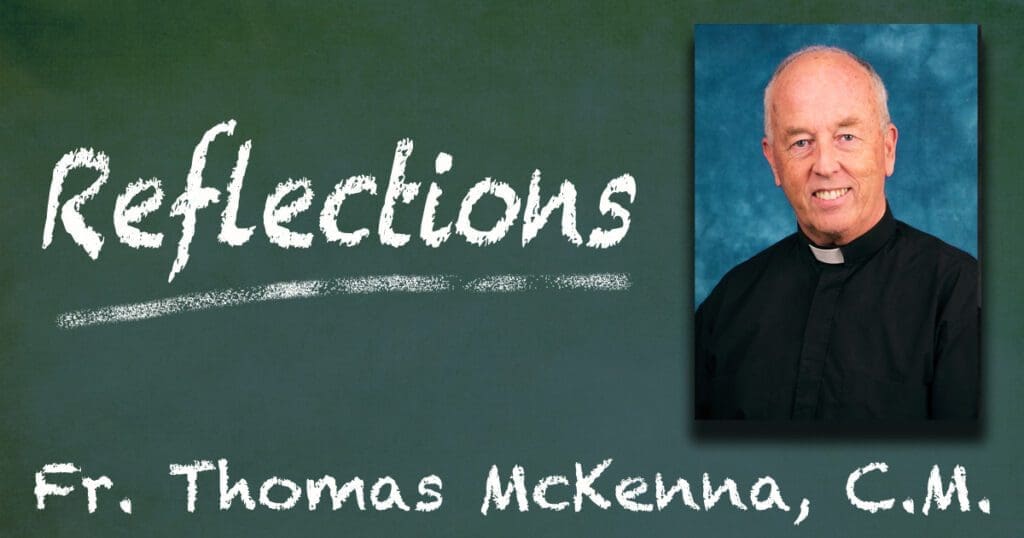The motto on the great seal of the United States is the Latin “E Pluribus Unum.” It’s translated: “Out of the Many, One.” And it contains 13 letters, one for each of the original states who, though very different from one another, decided to try to work together as one.

As we know from United States history, that goal was only more or less attained – as seen by the Civil War, and indeed the stressed situation of the present day. But that goal, to be united as one, continues, even as we struggle to make it happen.
The example is used to draw attention to what’s involved in the many being held together by the One. Perhaps too secular an example, but it calls attention to a reality (or better, a person) that the readings of this season have focused on, the third person of the Blessed Trinity, the Holy Spirit.
In a number of places, the Acts of the Apostles pictures the coming together of very disparate groups, in one instance separated by different tongues. The Holy Spirit appears among them and somehow draws them together, bridging even the language barriers. A case of “Out of the Many, One.”
In his letter to the Corinthians, Paul illustrates the same theme with his example of the human body. It has many parts, but functions as a unified organism. In the Church there are many members, different from each other, but through the Holy Spirit, they are being brought together into a oneness. There are many kinds of spiritual gifts, Paul continues, but they all rooted in and held together by the presence of this same Spirit. It is a force for unity, a presence that works to draw together things and people that by themselves would go off on their own.
In both Vincent’s time and in the present, efforts to reconcile opposing groups continue. Certainly, this plays out in the different Vincentian Family campaigns to give the poor visibility and bring them more into the center of society.
It’s our faith that such efforts to overcome division are fed and powered by this Third Person. Attempts to bridge gaps find their effectiveness to be rooted in the nearness and workings of the Holy Spirit, God’s force for unity.
As St. Paul tells us: “For in one Spirit we were all baptized into one body, whether Jews or Greeks, slaves or free persons – and we were given to drink of One Spirit.”







Good Friend Fr. Tom,
I liked the pivot from secular oneness to the essential spiritual Oneness. Very Teilhardean in its appreciation of the unifying force & spirit of all units of Creation as being & becoming One with the Creator. Thank you for the inspiring reflection.
Joe Bellacosa
Joe, On The subject of The subject of Creation, check out a new book, “Come, Have Breakfast” by Elizabeth Johnson. Its a winner
Thanks for the cue, Tom,
Will do.
🙏
Thanks, Tom,
Will check it out
Happy Summer
Joe